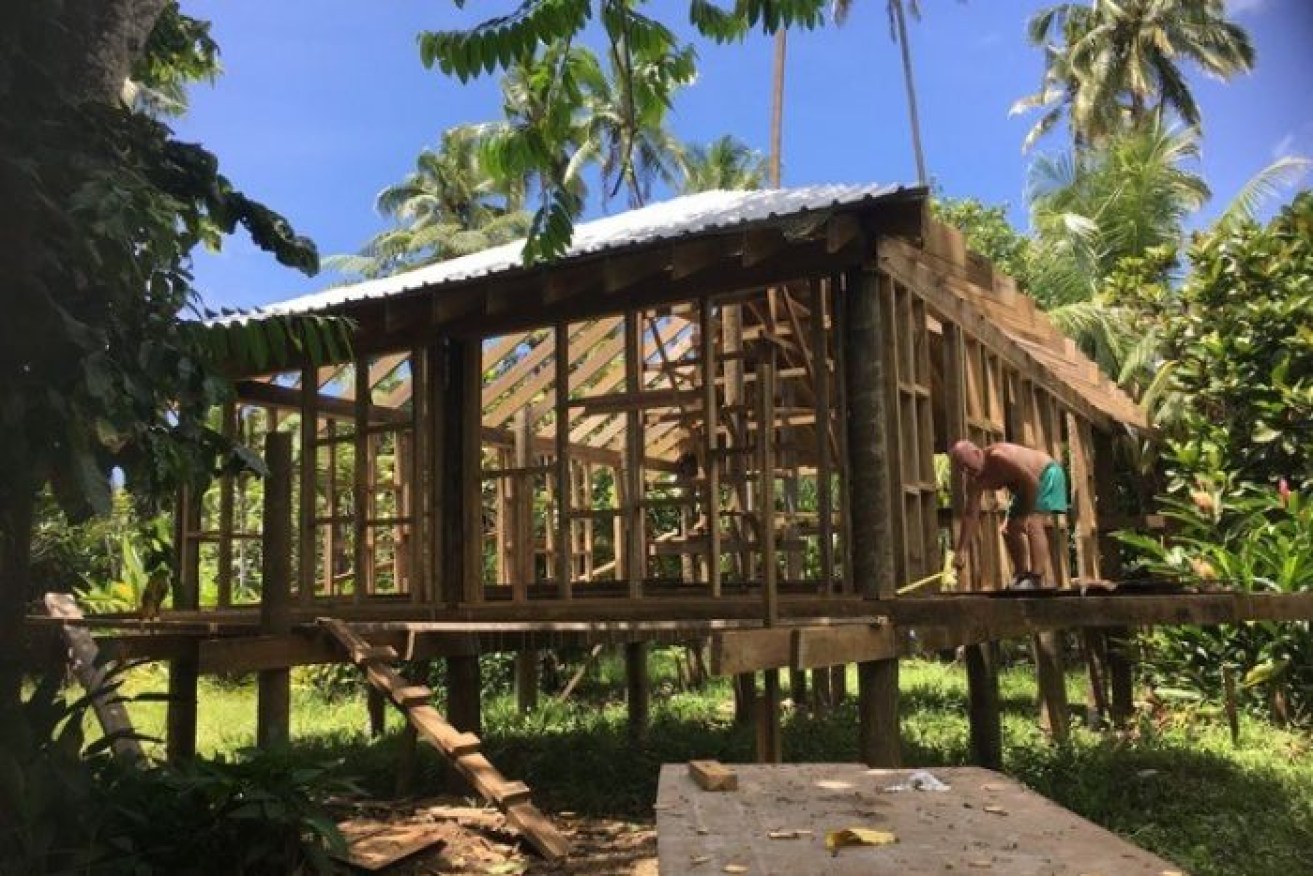Gum trees or palm trees: The perils of investing in property in the Pacific Islands

One retiree told the ABC building a home for their retirement in Fiji "was the worst decision" they'd ever made. Photo: ABC News
Some Australians dream of a home among the gum trees — others prefer the palms of the Pacific Islands.
But retirees interested in buying homes in the Pacific are being warned they need to be very careful to avoid losing their money.
There is little freehold land available, with much of it being leasehold, and complications can arise from collective land ownership by local communities.
Rogue builders, some of them with little actual experience, can end up costing investors thousands.
A couple from Melbourne, Alwyn and Robert, said they had been ripped off by the man they contracted to build their house in Fiji, and they know of many other expatriates in a similar situation.
Alwyn said they could end up losing their retirement savings entirely.
“We’ve had our builder who has breached his own contract and walked off the job and left us with not even half complete buildings,” she said.
“If we can’t finish it ourselves, we could very well be in a situation where we’re going to be penalised.”
She said there seemed to be little that could be done when builders broke contracts in Fiji.
“When they do walk off the job, or if they take your money [and] don’t finish the job, they’re not punished,” she said.
“With the Fijian Commerce Commission there’s 150 complaints against builders.”
Alwyn said there was not enough protection for investors in Fiji, and unless they have a lot of money they can afford to lose, expatriates should avoid building there.
‘You don’t really have control over the land’
Construction Industry Council of Fiji president Gordon Jenkins said the best thing expatriate property investors could do was get a signed, legally enforceable agreement with their builder which would be recognised by a court.
He said the construction industry in Fiji was trying to crack down on informal builders by introducing a licensing scheme.
“The construction industry is very proactive and it’s trying as well with the Consumer Council people here trying to get all construction people licensed, which means they’re vetted for competency,” Mr Jenkins said.
“If they’ve got a shonky builder and he’s not licensed, well it’s on your own head if you use somebody like that.”
Malcolm Gunning, president of the Real Estate Institute of Australia, suggested people who wanted to build a retirement or holiday home in the Pacific also needed to be very cautious about the difference between freehold, leasehold and tribal land ownership arrangements.
“It’s a risky business buying in these countries, a lot of them are third world countries and their parliamentary system, particularly in Fiji, is really still run on a lot of tribal lines,” Mr Gunning said.
“So a lot of the land that you’re looking at is leasehold land, but there’s tribal interests involved.
“You really don’t have what we have in Australia and that’s freehold. And you don’t really have control over your land.”
‘The worst decision we’ve ever made’
Mr Gunning said buying property in the Pacific was a speculative enterprise, and investors needed to be prepared to lose their money.
He said while many people had taken that risk and were living very comfortably, investors should be well informed and wary of so-called ‘advisors’ who want money up front.
However, Alwyn, a former Melbournian, said after her experience in Fiji, she would advise others thinking of following her example not to.
“It was the worst decision we’ve ever made. It’s not a stable enough system here, there’s not enough protection for investors.”
-ABC







